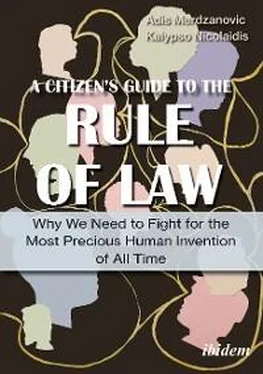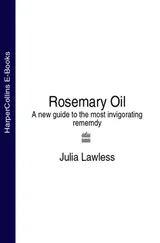What the Rule of Law is and why it matters
Everyone should want to live in a society blessed with the rule of law.
Where you stand free from the tyranny of fear: you may not be treated arbitrarily neither by the state nor the powerful.
Where you stand free of the tyranny of the few: no king, minister, nor Mafioso is above the law.
And where you stand free of the tyranny of the majority: no minority group may be persecuted with impunity.
The rule of law offers you safety, security, and may we say dignity, like a comfortable Iron Man suit protecting you at all times and against all enemies.
It seems intuitively obvious that the rule of law is a good thing to have. Or would you prefer to subject yourself to arbitrary rule by a monarch, government, or mafia godfather? If so, would you not deny yourself the very dignity that makes you human?
We know there are people who find subjugation quite exciting, sometimes even arousing. But even for them, the eventual relief is an integral part of the fascination. Few would freely submit themselves forever to somebody, and even fewer would advocate servitude as a guiding organising principle for modern societies.
It was the German philosopher Immanuel Kant who said that human beings should never be treated as means, for example for someone else’s pleasure. They have an inherent moral value that ought to be respected and protected. Of course, we don’t need Kant to tell us what we intuitively know already: that one should always treat other human beings in a way that one wants to be treated oneself in that particular situation. If there is such a thing as a universal law of humanity , a golden rule, this edict probably lies at its core.
But while generally a good guide in life, intuition has its limits. There are, after all, situations where there is no universal consensus about what the intuitively right thing to do would be. Or is there an intuitively correct answer to the riddle US comedian Stephan Colbert likes to put to his guests, namely whether they would prefer fighting a horse-sized duck over a hundred duck-sized horses?
Then there are events in nature that are true even if they defy our common intuition. A quantum particle can be at two places at once, and a group of people might choose to annihilate another out of fear. Intuition is a predictor neither of truth, nor of morality.
Therefore, saying that we intuitively know what the rule of law is, or at least ought to be, and why it matters, does not really bring us very far in our quest to distil its deeper meaning. And distil it we must, before we can move to the task of actually saving it.
Going deep: Love and everyday gestures
To know what we mean by the rule of law as a “deep concept”, we need to start by treating the rule of law as if it were a loving relationship between two people. There is the deep love that profoundly binds them together, and then there are the everyday gestures through which this love is expressed.
With the rule of law, there’s the larger principle, the core. We need to know what norms constitute this core and what functions they perform. That’s the love part. Once we have clarity on that, we need to figure out how the larger principle is to be applied in social and political orders. We need to know what the core means concretely for living together. That’s the everyday part.
So, let us start with the first task, thinking about the larger principle, the love. Here, a problem occurs that is very central to our larger argument in this book and makes this next section somewhat complicated. Bear with us, please.
We may approach the rule of law from different viewpoints. Aspects of it are philosophical, others are sociological, political, or legal. Trying precisely to define what we are talking about is thus difficult, as it varies slightly from one perspective to the other. Indeed, looking at the vast rule of law literature that has been produced so far, we find that actual definitions about the rule of law are either absent, or they depend on what the writer wanted to achieve or the era or tradition in which s/he writes. 6Debates among legal theorists abound so that one may be forgiven to think that all these smart people have actually no idea what they are talking about. 7After all, if you cannot even agree on what your subject is, how can you determine whether it’s there or not?
Of course, all these people know very well what they are talking about. They are smart and have done some serious thinking. But they sometimes lack the ability to make their thoughts clear to the rest of us. They have a problem of communication rather than one of understanding.
The challenge in defining the larger principle of the rule of law is quite straight-forward; actually, there is one fundamental point upon which all these lawyers, philosophers, sociologists, and political scientist can agree:
The rule of law is a “rule about the importance and priority of legal rules” for a particular society.
Sounds relatively straightforward: The rule of law is simply the command to obey the laws.
But that can’t be all there is. The rule of law concerns itself with the law—but is at the same time something above the law? This definition indeed “carries a whiff of paradox, a circular sense of justification”. 8There seems to be no distinction between the love part, and the everyday part of the rule of law. Yet we need those two aspects of the rule of law to somehow come together in a definition, if we wish to make the concept broadly understood. But how?
Rule by Law and Rule of Law
When we deal with the law, we usually find two prevailing schools of thought. There are those who say that the law is what is written in the law books. We call these scholars “legal positivists”. Their credo is simple: just follow the rules in the book.
But what if the rules contradict our deep sense of morality? What, for example, if the law in a country allows the government to imprison journalists for their critical reporting? Or what if the law allows a king to take a subject’s first-born so that it may become part of the ruler’s court? Legal positivists would have no problem with that, as long as proper procedures were followed.
This is where intuition helps after all. We intuitively know that this cannot be right. We know that, in such situations, the rule of law should be about protecting the journalist from governmental overreach and leaving the child in the caring hands of its family? Surely, the rule of law must be more than the positivist “rule by law”!
Come to think of it, our readers living in one of the future EU Member States might know the distinction we seek to explain better than us. In fact, many languages have recognised it, even if, unfortunately, English is not one of them. Maybe that’s something Shakespeare, after adding so many words to the English language, just didn’t have time to get around to do. It’s a pity, really.
In German or the languages of Slavic origin there is a semantic difference between the law in the books (in German Gesetz , or a variation of zakon in the Slavic languages) and the law as a principle of justice ( Recht, or pravo ). In the languages of the former Yugoslav space, for example, the translation of “rule of law” is usually given not as “ vladavina zakona ” (as in “rule by law”), but as “ vladavina prava ”, with “ pravo” being semantically linked to the concept of justice (“ pravda” ) and literally meaning “right”.
To capture what the rule of law is, then, we need to move beyond the mere notion of a positivist, rule-by-law description and look at the norms at its very core. But what norms could that be? As so often in life, we need to find the love, in traditional and less traditional forms.
Читать дальше












